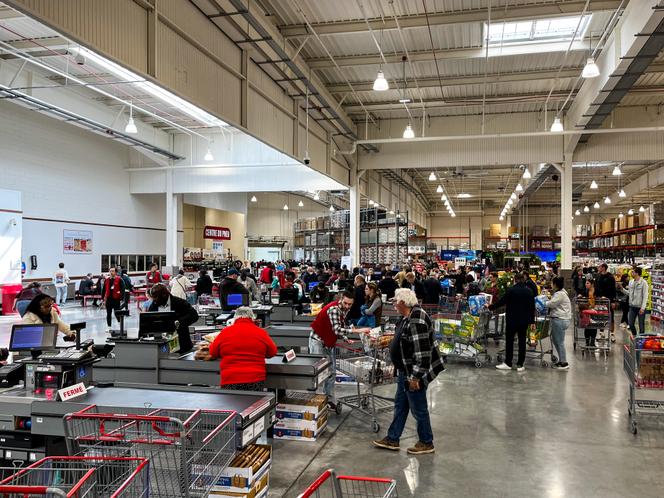


Is the end of inflationary shock in sight? In Europe, at least, a deceleration in price increases has been observed. According to Eurostat data published on Thursday, November 30, in November the year-on-year inflation rate was 2.4% across the eurozone and 3.8% in France. This is a very far cry from the peaks seen a year earlier, when it reached 10.6% and 7.1% respectively.
Needless to say, however, not many people will be celebrating this news: Prices aren't falling, they've simply stopped rising as fast as they were before. Over three years, inflation has been 18% in the eurozone, and wages have not risen accordingly. On average, everyone is poorer today than they were at the end of the pandemic.
"This has been the worst shock to living standards since the 1970s in Europe," summed up Erik Nielsen, Group Chief Economics Advisor at UniCredit, an Italian bank. "A year ago, real wages [adjusted for inflation] were down 7.7%," recalled Anna Titareva, a European Economist at UBS, a Swiss bank. "This was unprecedented in the history of the eurozone. Previously, the biggest drop had been around 1.2% in 2011, during the eurozone crisis."
Therefore, while the shock is now beginning to subside, its consequences will be felt in the long term. Consumption patterns have changed radically: Europeans are buying less, switching from well-known brands to private labels, and shopping more often at discount stores. German people have even reduced their sausage consumption, and Italians their wine consumption: Nothing is off-limits.
The November decline in inflation came as a surprise to economists, who weren't expecting such a sharp drop. Not only did the eurozone inflation rate fall from 2.9% in October to 2.4% in November, but so-called "core" inflation (which excludes food and energy, as these are more volatile) also markedly slowed, from 4.2% to 3.6%.
In several countries, prices are now almost stagnant. They rose by 0.7% in Italy, 0.8% in Finland, 1.4% in the Netherlands and they are even slightly negative in Belgium, at -0.7%. In France, they have increased by 3.8% (these are harmonized European figures, while the inflation calculated by INSEE is slightly lower, at 3.4%).
"The worst of the inflation is probably over," said Gilles Moëc, AXA Group Chief Economist. Indeed, all of the factors that drove the surge in prices now seem to be heading in the right direction. In Europe, the main shock came from energy, with a 15-fold increase in gas prices in the summer of 2022, which then gradually spread throughout the economy. "Fundamentally, the energy problem has not been solved, but Europe has sheltered itself for the time being," continued Moëc. "Germany has installed a liquefied natural gas import terminal, Italy has signed a supply agreement with Algeria... This winter will be a little more comfortable than last year."
You have 80% of this article left to read. The rest is for subscribers only.
